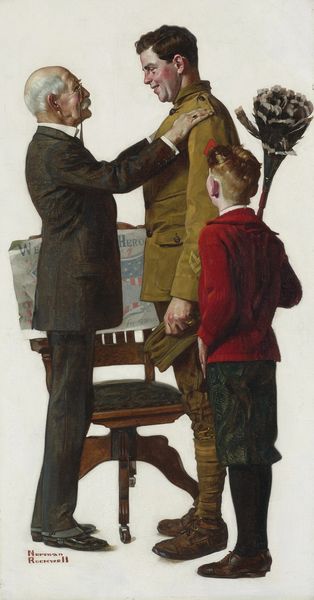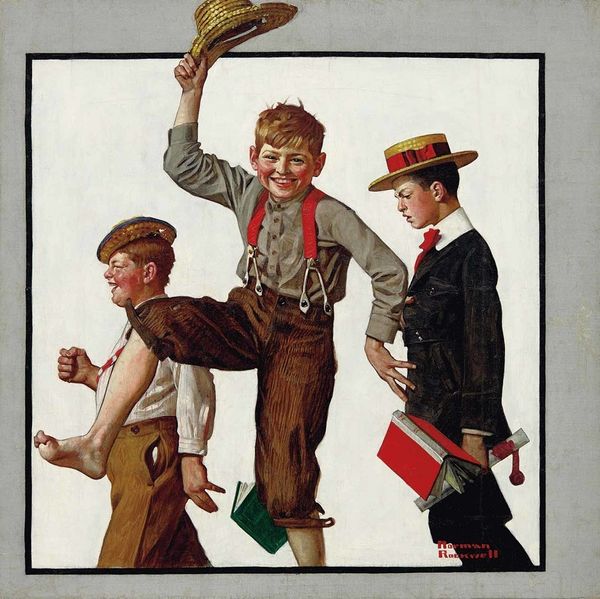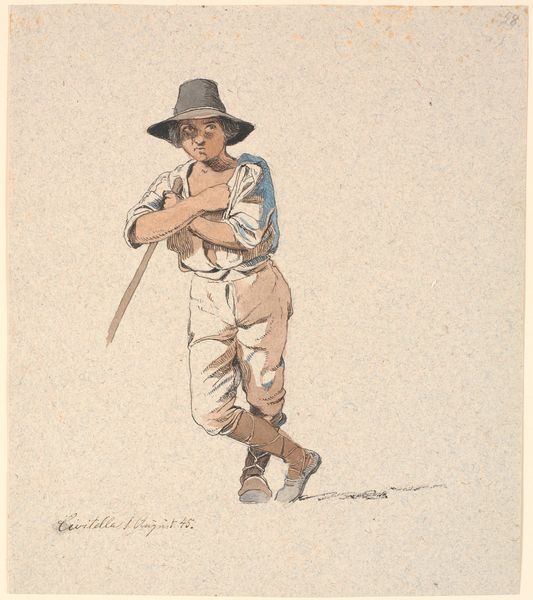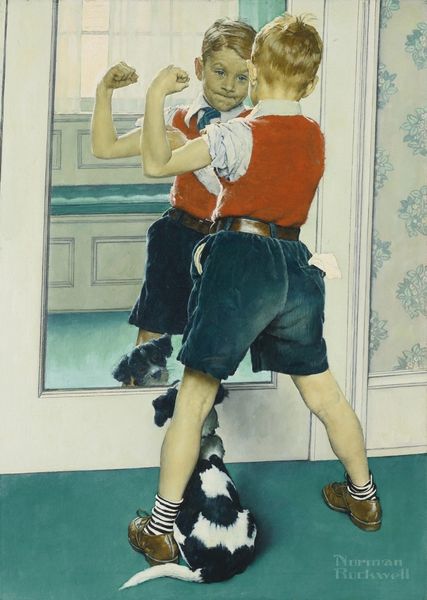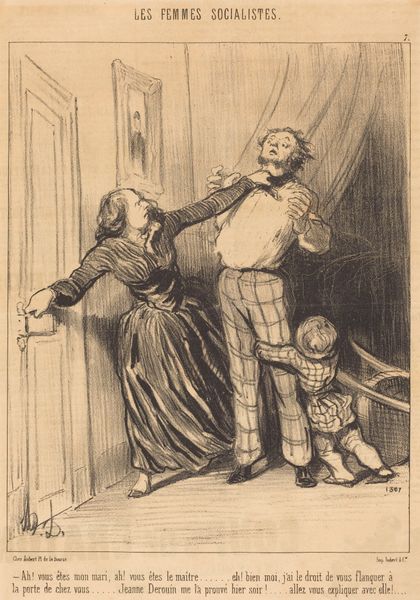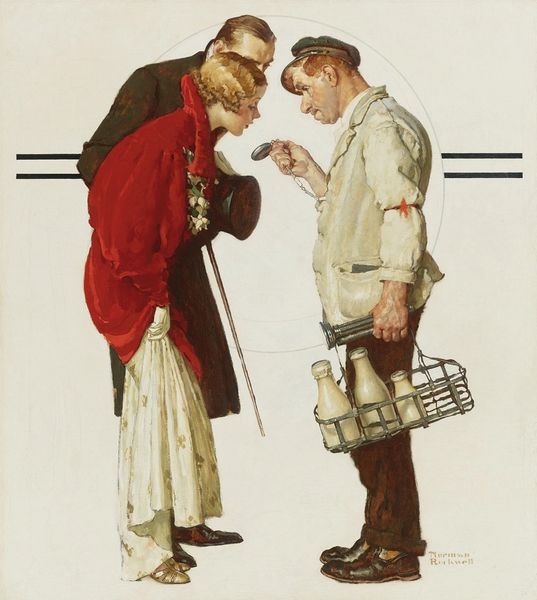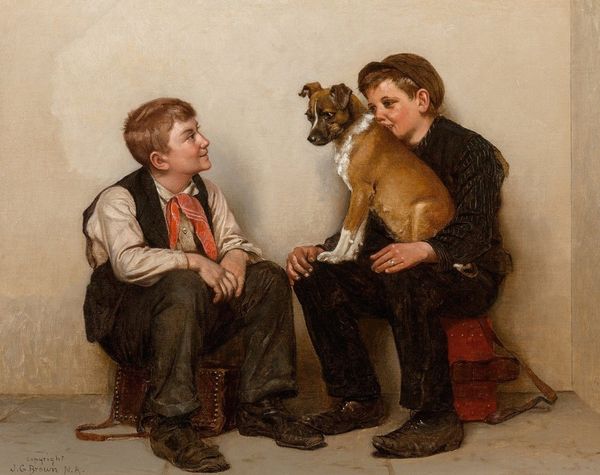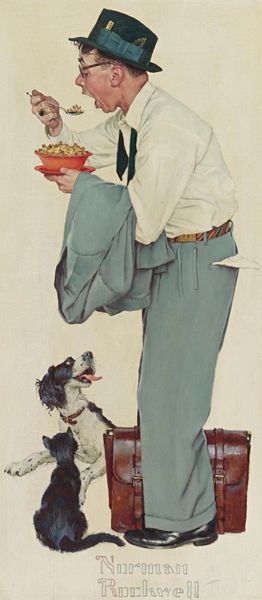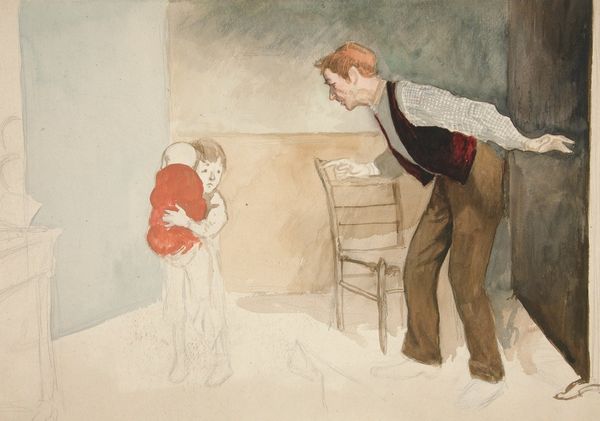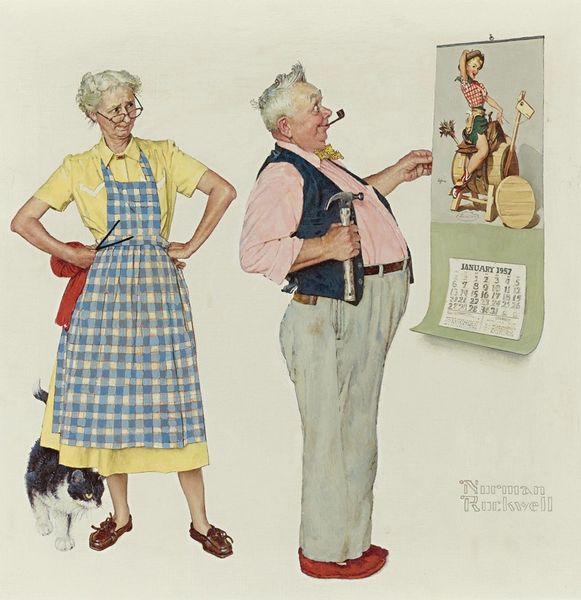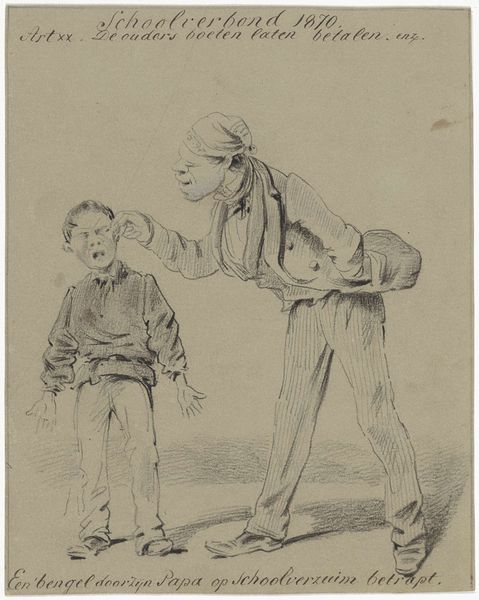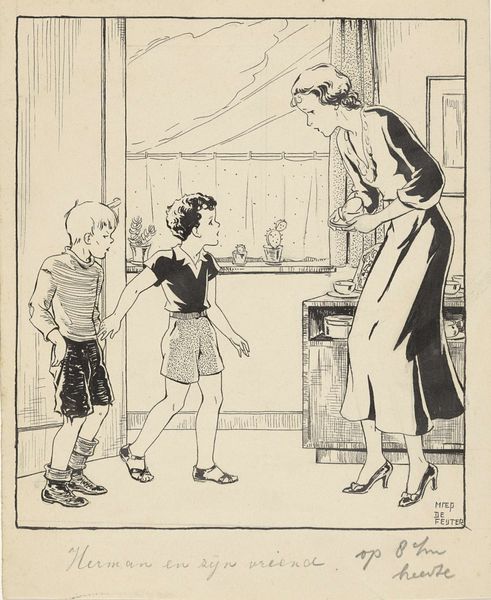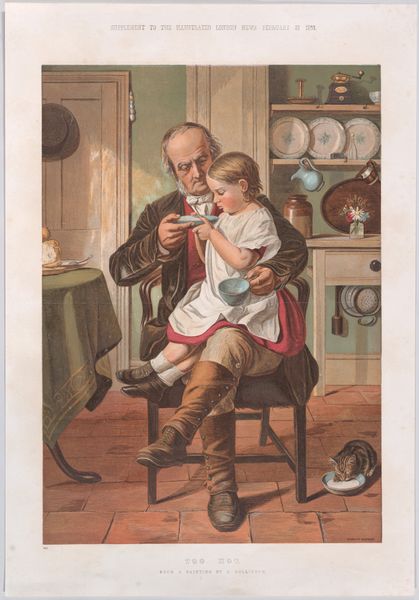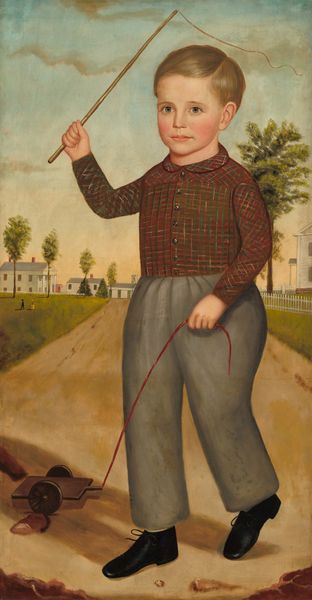
painting, oil-paint
#
portrait
#
narrative-art
#
painting
#
caricature
#
oil-paint
#
caricature
#
portrait drawing
#
watercolour illustration
#
genre-painting
#
academic-art
#
modernism
#
realism
Copyright: Modern Artists: Artvee
Editor: So here we have Norman Rockwell's "Boy and Shopkeeper; Gone on Business" from 1960, rendered in oil paint. There's such a clear narrative unfolding—I can almost hear the screen door slam! What do you make of Rockwell's storytelling in this piece? Curator: Rockwell's work operates on nostalgia, doesn’t it? He presents an idyllic vision of small-town America, one deeply implicated in ideas about labor, leisure, and access to both. This painting, with its "Gone on Business" sign, suggests the intersection of work ethic and recreation, but for whom? Editor: I see what you mean. The shopkeeper looks like he’s ditching his responsibilities for a day of fishing. The boy seems to know the secret too. Curator: Exactly. And that’s where we need to ask some questions. Who has the privilege to simply close up shop and go fishing? How might factors such as race and gender impact such leisure time? The rosy-cheeked depiction elides other stories—histories of those systematically denied these same freedoms and opportunities. Editor: So, by presenting this specific narrative, is Rockwell perhaps overlooking broader societal realities? Curator: It is possible to view it that way. Rockwell offers us a carefully constructed vision of Americana that may be both comforting and critically incomplete. While celebrated for realism, this art invites us to consider whose realities are validated and whose are omitted. Who isn't represented in this story of American life? Editor: That really reframes the painting for me. I hadn't considered it as a statement about social structures, but that lens opens up so much more to think about. Thanks! Curator: It's about understanding that art never exists in a vacuum; it reflects and refracts the world around it. I'm glad you’re thinking about this and asking difficult questions.
Comments
No comments
Be the first to comment and join the conversation on the ultimate creative platform.
